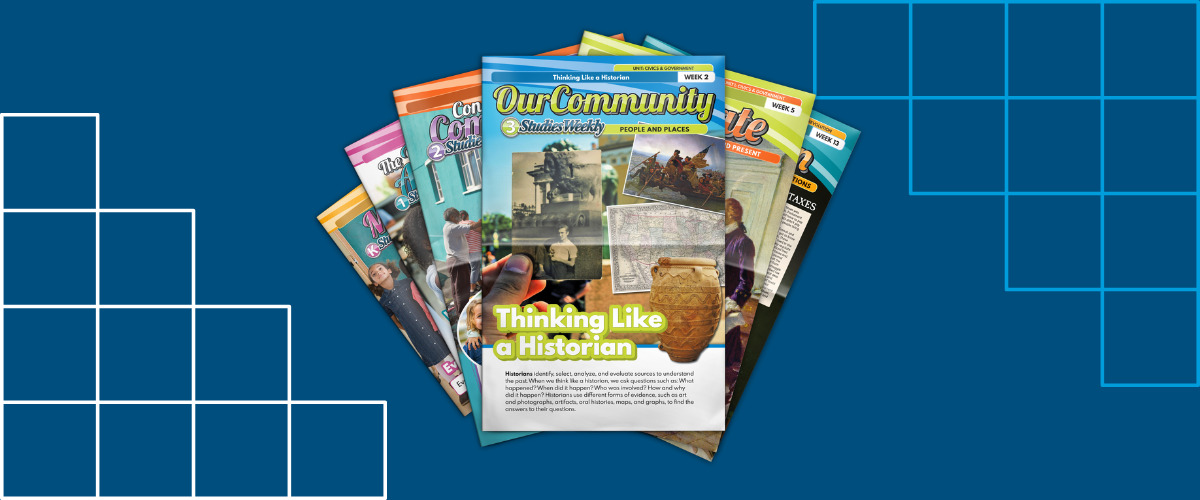Ideas for Storing Student Publications
You’ve received your Studies Weekly student editions, sorted them the way that works for your classroom, but how do you store them?
Here are some of my favorite ideas for storing Studies Weekly student publications.
Initially when my Studies Weekly materials come, I separate the student print publications and file them by weeks so I have them all in my filing basket ready to grab and go during the year.
These file crates work wonderfully to file the Student Publications by week so they are all ready to go when needed:
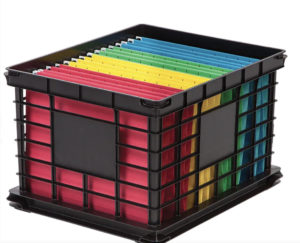
These plastic drawers are another inexpensive and versatile option. You can store student publications and other materials by the students’ tables, if space for large cubby shelves is not an option:
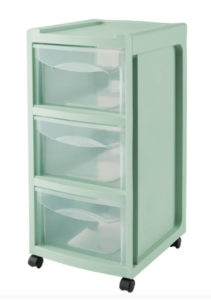
This type of shelf is an inexpensive option if you want to create student cubbies:
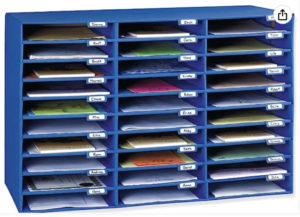
Plastic bins can also work as student cubbies to store their publications and other materials:
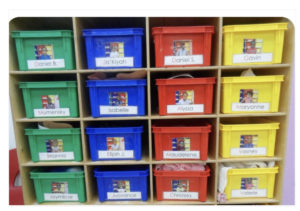
These storage cubby shelves are a wonderful option, but are more expensive:
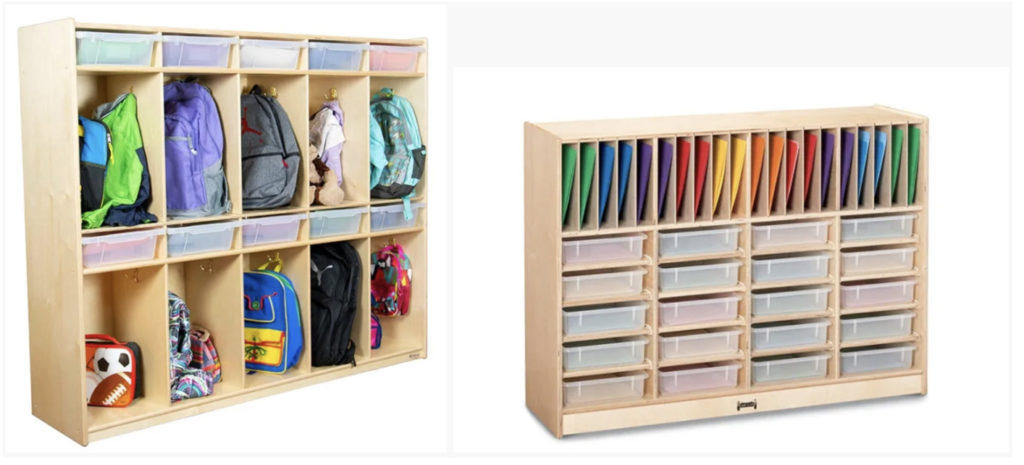
I personally use Studies Weekly by passing them out just one week at a time as we are using them. This helps so they do not get damaged or lost.
I really like using cubby shelves in my classroom. I had a large one with shelves that housed the students’ workbooks, Studies Weekly materials, and other essentials, sorted by table and subject. The table leaders for the week were responsible for gathering and distributing the materials for their table as I instructed them to do so. Remember, have students put their names on their publication.
Each student also had their own personal cubby. Anything that would be going home was put in their cubby to go in their backpacks at the end of the day. If we were finished with our Studies Weekly publication, students put them in their cubbies to take home. There, they shared their learning with their families, could use them to play school, make posters and projects with them at home, or keep them in a treasure box. (Some students loved them so much they really did this!) So cute!
If we did not finish them for the day and needed them available for the next lesson time, there are a couple things we would do:
- If I wanted to look over how they marked them for the language arts skills learned through our reading, I would have them put their names on them, and then I’d collect them by picking them up as I excused students to transition to center time or recess. Collecting them ensures I get them all.
- Sometimes, I had students put the publications in the ”turn in box” as I called their table to line up for recess. This teaches students personal responsibility, plus excusing one table at a time allows me to watch to make sure they are remembering to turn them in. 🙂
In both situations, I’d check the students’ work, and then hand them back out to the students before starting our next lesson.
Another idea you can do, is to have a folder or binder that students can keep their student publications in while studying them and/or using them for the week. These binders/folders could be kept with their interactive notebooks in their desks (if they have one), or in a seat pocket, or in their table cubbies.
If teachers wanted to distribute the entire unit at one time, they could put each unit in a folder. Folders work better with older students, and help to prepare them for secondary education processes. (In my experience, younger graders often misplaced or accidentally took home the student publication when we used folders or binders.)
I hope these ideas are helpful!
Debbie
 Debbie Bagley works as a Studies Weekly Teacher Advocate. Teacher Advocates are former teachers who help teachers like you implement Studies Weekly materials into their instruction. Teacher Advocates can provide support through email, phone call, video chat, and regularly scheduled Teacher Talk Webinars on Tuesdays and Thursdays. Teacher Advocates are only available for classroom teachers currently using Studies Weekly materials. They are not available for homeschools.
Debbie Bagley works as a Studies Weekly Teacher Advocate. Teacher Advocates are former teachers who help teachers like you implement Studies Weekly materials into their instruction. Teacher Advocates can provide support through email, phone call, video chat, and regularly scheduled Teacher Talk Webinars on Tuesdays and Thursdays. Teacher Advocates are only available for classroom teachers currently using Studies Weekly materials. They are not available for homeschools.